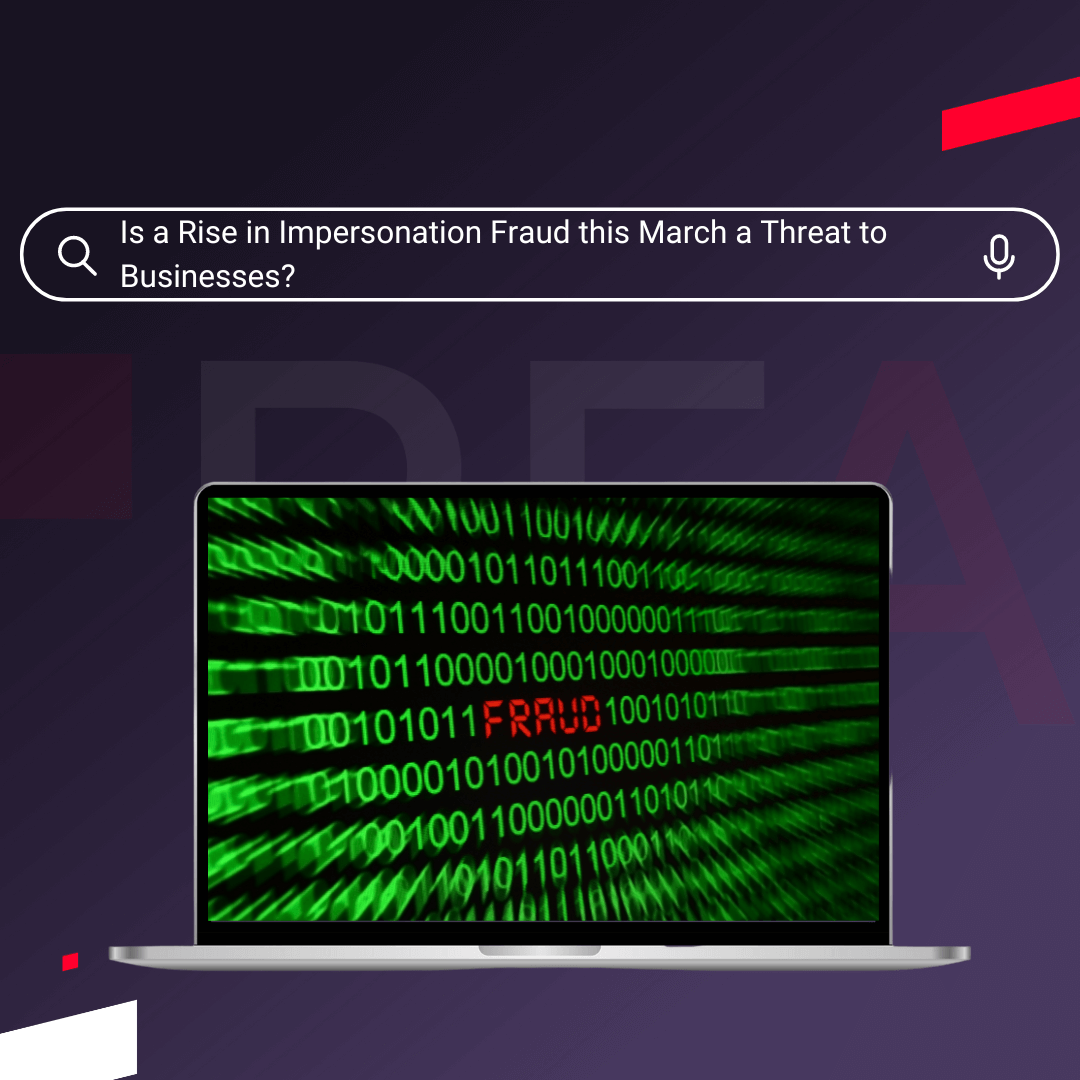Impersonation fraud, also known as identity theft or impersonation scams, involves a perpetrator pretending to be someone else, typically a trusted entity such as a bank, government agency, or service provider, to deceive individuals into disclosing sensitive information or transferring money.
These scams can occur through various channels, including emails, phone calls, text messages, or in-person interactions. The ultimate goal of impersonation fraud is to steal the victim's personal information, financial assets, or both.
Now, evidence suggests that impersonation cases are likely to rise throughout March.
But, what are the indicators that are leading banks to issue warnings across the UK, and why is the end of the financial year enticing more criminal activity than usual?
What is the News Reporting?
HSBC shared initial reports, as they warn of a potential spike in impersonation scams in March, following nearly £1.1 million reported stolen by impersonation scammers from HSBC customers in March 2023.
These figures account for around one-ninth of all impersonation scams reported to the bank in 2023, with the average amount defrauded per person being £5,791.
Santander also warned about a surge in bank impersonation scams targeting businesses, with reports doubling in recent months, and over 200 customers approached by financial criminals in September alone.
Chris Ainsley, head of fraud risk management at Santander, emphasises the devious nature of these scams, as fraudsters pose as bank employees and attempt to convince staff to authorise payments and provide access to accounts and devices.
Typical scam methods involve calls or text messages claiming to be from a bank's fraud department, providing a case ID and a link to a fake website.
Why is There A Surge in Impersonation Fraud?
Impersonation fraud is not a new type of crime, but the end of the financial year appears to be a prime opportunity for criminals.
This is especially true as the tax year ends in March, meaning people may expect communication from HM Revenue and Customs (HMRC), making them susceptible to scams. Scammers can pose as HMRC through phishing emails, calls, or texts to steal money and personal details.
What is the Threat to Businesses?
Businesses have to have their finger on the pulse when preempting financial criminal activity.
Impersonation fraud can result in direct financial losses for companies, whether that is through employees being deceived into transferring funds or finance officers falling foul of phishing scams, it can lead to unauthorised transactions or theft of company funds.
In some cases, this can go one step further, leaving companies vulnerable to intellectual property, trade secrets, or proprietary information being stolen.
Falling victim to impersonation fraud can also damage a company's reputation and erode customer trust. Customers may lose confidence in the business's ability to protect their sensitive information, leading to a loss of business and negative publicity.
Beyond this, the largest threat is the legal and regulatory consequences businesses may face as a result of impersonation fraud incidents.
Depending on the nature of the fraud and the data compromised, companies may be subject to fines, lawsuits, or regulatory sanctions for failing to adequately protect customer data.
Once the crime has been detected, the business is still in danger, as dealing with these incidents can disrupt operations and divert resources away from core activities.
For example, if impersonation fraud involves a data breach, companies may incur significant costs related to investigating the breach, notifying affected individuals, providing credit monitoring services, and implementing cybersecurity improvements to prevent future incidents.
Stay Protected with Red Flag Alert
Businesses need to be one step ahead to be able to protect themselves from impersonation fraud. But, this can quickly become an overwhelming task, as there is rarely time to channel additional resources into employee training and further research into fraud prevention tactics.
Instead, companies can have peace of mind with Red Flag Alert. Our complete digital suite of business data tools enables businesses to immediately access key data to feel secure in their decisions.
Develop and enforce clear policies and procedures for handling sensitive information and financial transactions that are reinforced by Red Flag Alert’s leading technology:
- Implement robust verification procedures for all requests involving sensitive information or financial transactions. This may include verifying the identity of individuals through multiple channels or requiring additional authentication steps.
- Regularly monitor company accounts, communications, and transactions for any signs of suspicious activity or unauthorised access. Implement systems and protocols to flag and investigate potential impersonation attempts promptly.
- Stay informed about the latest impersonation fraud tactics and trends by monitoring industry news, participating in relevant training programs, and collaborating with other businesses and law enforcement agencies.
- Verify people’s identities in a matter of seconds with Red Flag Alert’s 99.998% accurate biometric liveness check.
- Confirm company and director details, including VAT number, with our indepth and easy to understand company reports.
- Conduct regular security audits and assessments to identify and address any vulnerabilities in systems, processes, or employee practices that could potentially be exploited by impersonation fraudsters.
Get in touch with our Red Flag Alert experts to unlock your free trial of our industry-leading services today.



